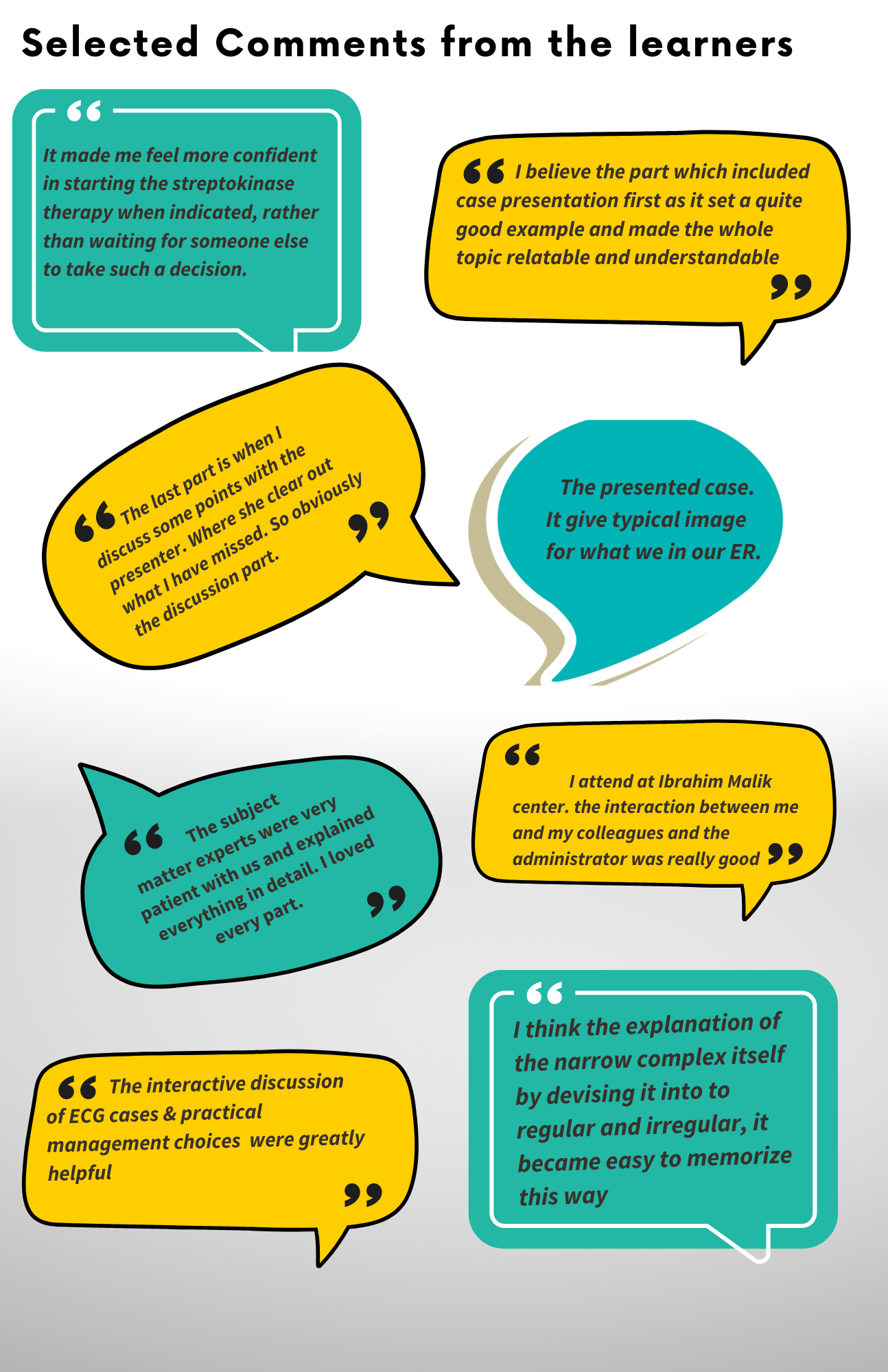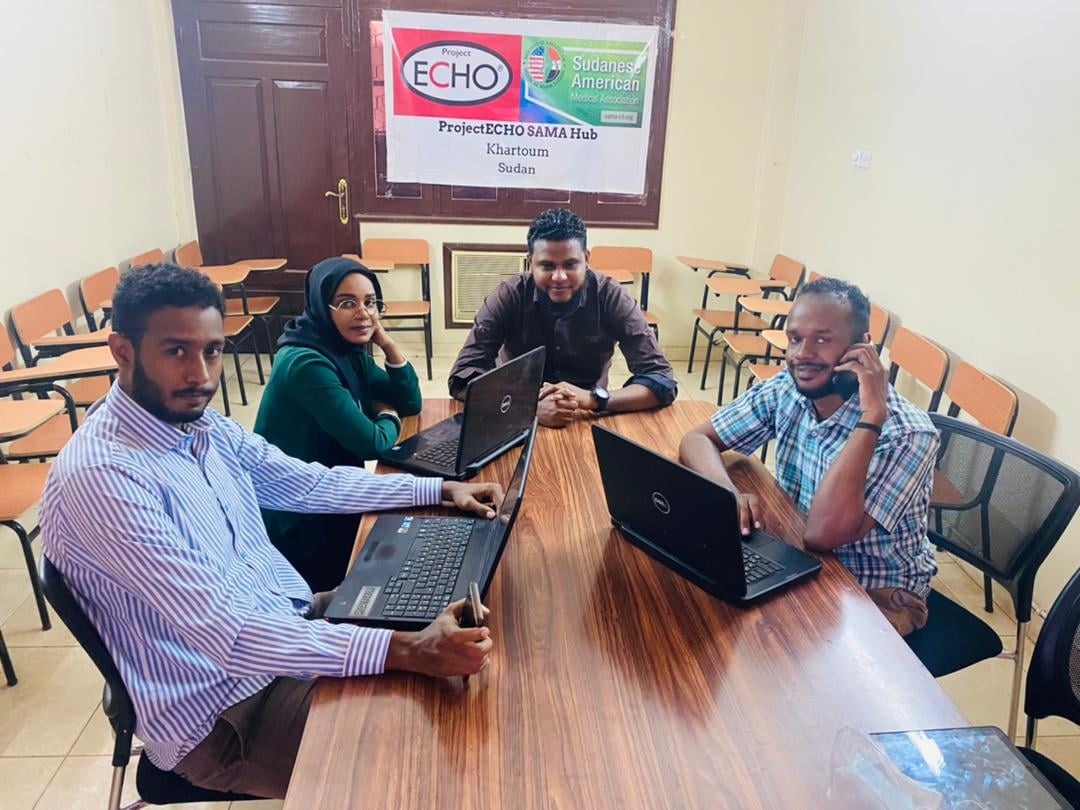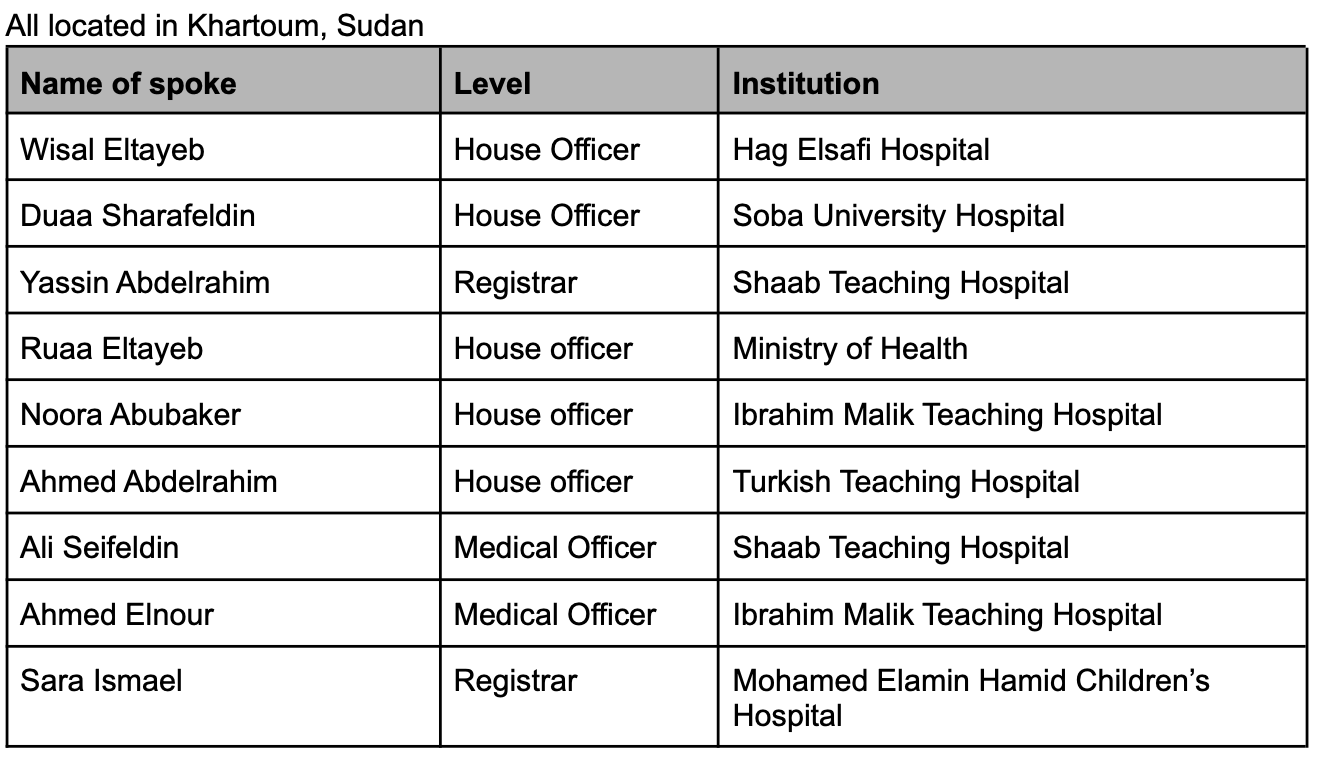Background:
Patients with acute cardiac emergencies in Sudan present to Emergency rooms which are staffed by junior physicians; who are undertrained, under-supervised, and work under exceptionally harsh conditions. A common recurrent scenario is that of a patient who presents with an acute ST-Elevation Myocardial Infarction that is diagnosed by an ECG and treated with a life-saving medication – Streptokinase – which are both available to the junior physician. However, due to a lack of ECG interpretation skills, the junior physician does not administer the treatment in a timely manner resulting in patient death (either acutely or in the form of a shortened lifespan).
Objective
Train Frontline physicians to:
- Diagnose and treat Acute Cardiac Emergencies
- Maximally utilize limited available resources
- Reduce Cost of Care
- Potentially Save Lives
- Improve ECG Interpretation Skills
- Improve Presentation Skills
Topics:
- STEMI – Diagnosis
- STEMI – Management
- ECG problems – focus on ST changes
- NSTEMI diagnosis & risk stratification
- NSTE ACS management
- Tachycardias
- Bradyarrhythmias
- Atrial Flutter- Atrial Fibrillation
- Acute Pulmonary Embolism
- Aortic Dissection
- Cardiac Tamponade
- Mechanical Complications of Acute MI
- Pulmonary Edema
- Cardiology Problems
Duration:
#FrontlineECHO started on August 14th, 2021 as weekly sessions. Sessions were interrupted from October 30th, 2021 to January 1st, 2022 due to a national internet outage. Sessions resumed on January 8th, 2022 to February 12th, 2022
Summary

Learner Feedback






DIRECTOR

Salaheldin Abusin
CHICAGO, IL, USA
SUBJECT MATTER EXPERTS

HATIM KHEIRALLAH
RIYADH, KSA

HATIM YAGOUB
KERRY, IRELAND

OMER HASHIM
RIYADH, KSA

TALAL IBRAHIM
DUBLIN, IRELAND

YAGOUB MARZOOG
RIYADH, KSA
Frontline Team

YouTube Playlist of Talks
Spoke Presentations





